
100pcs Philodendron pink princess Bonsai seeds Philodendron Etsy Philodendron plant, House
In just a few simple steps, you can propagate your pink princess philodendron by stem cuttings. First, determine where you will cut the plant's stem. Your cutting should have two to three leaves and two to three exposed nodes at its base. Then, using sterilized, sharp pruning shears or scissors, cut the stem and separate your cuttings.

The Rare and Beautiful Pink Princess Philodendron
These pretty pink plants are low maintenance and fairly easy to care for. Pink Princess Philodendrons are not high-maintenance plants. However, there are a few things you can do to improve overall growth and make your plants thrive. As these plants are natural climbers, providing support to the growing stems will help them grow quicker. Moss.
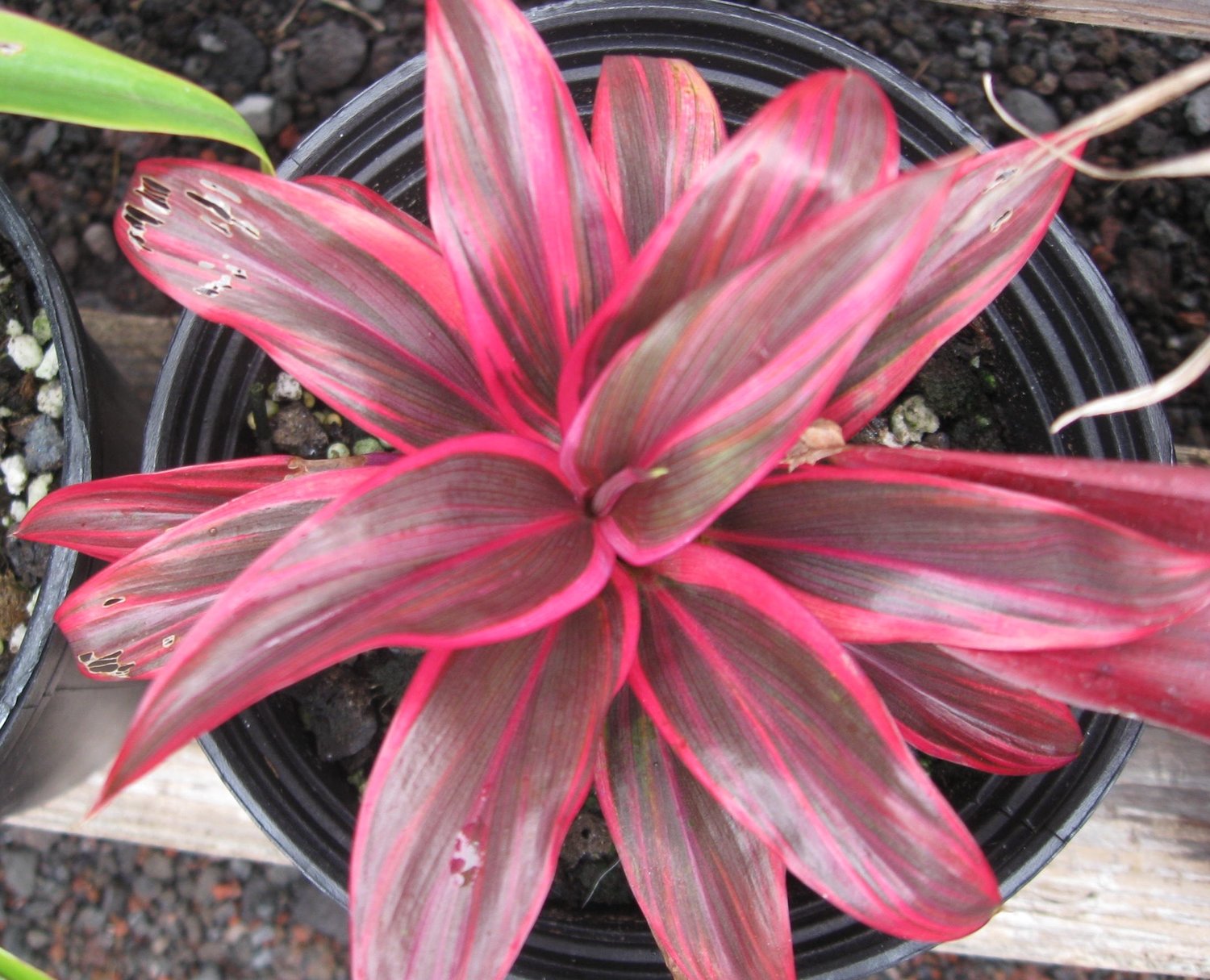
Cordyline Pink Princess PLANTS WHITSUNDAY
Pink princess is not a pink congo. There's a bit of controversy around pink plants, and sometimes the pink princess gets unfairly looped into the mess. To make a long and ugly story short, some plant sellers tried to profit off the "pink plant" trend by injecting a philodendron with chemicals that would unnaturally alter the color of the.

Philodendron Pink Princess 150mm Pot Dawsons Garden World
Pink Princess Philodendron, also known as Philodendron erubescens, is a striking and sought-after houseplant loved for its heart-shaped leaves with vibrant shades of pink, green, and black. Its unique pink foliage makes it a favorite among plant enthusiasts, adding a pop of color to any room.

Pink Pink Princess Escallonia Flowering Shrub in Pot (With Soil) (L7508) at
Like all Philodendron, Pink Princess is easy to propagate from stem cuttings. Trim off the stem just below a node where leaves grow. Be sure that each cutting has three or four healthy, nicely variegated leaves. Place your cuttings in a jar or vase of water. Replace the water every 2-3 days.

100Pcs/Bag Philodendron Pink Princess Bonsai Seeds Perennial Etsy Philodendron plant, House
Philodendron Pink Princess plants thrive in average room temperatures. The best temperature range for healthy growth is between 60°F and 84°F (16°C - 29°C). However, if you can keep the temperature above 65°F (18°C), that is even better. Follow that temperature guide if you grow your pink-leaved plant outdoors in containers.
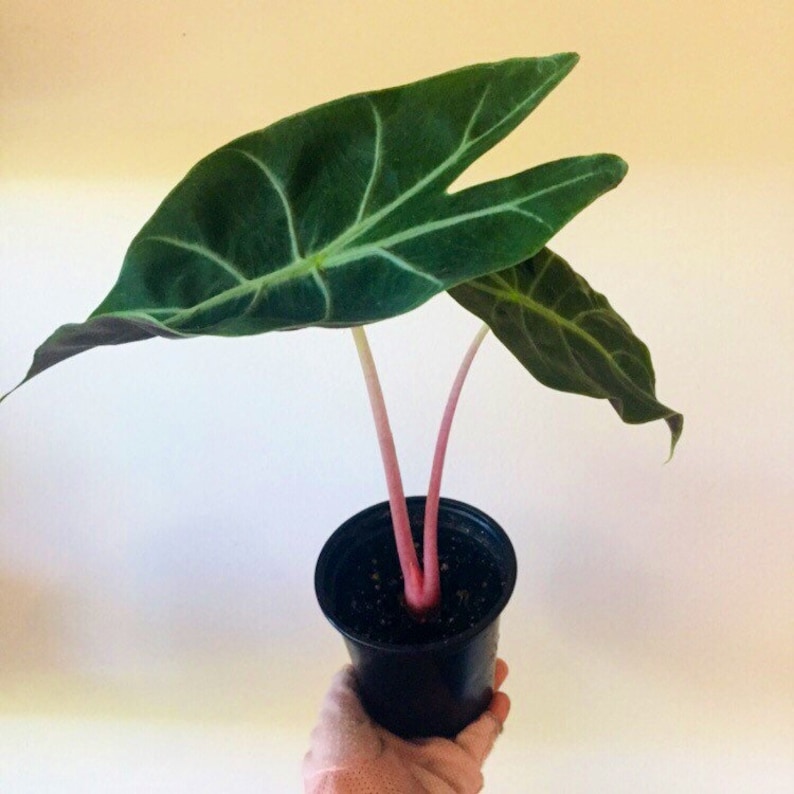
Rare Alocasia pink princess live plant Live House Plant Etsy
Pink Princess Philodendron Plant Features. Philodendron 'Pink Princess' is a fun, ultra-trendy indoor plant. It's loved for its dark green to purple foliage playfully variegated with streaks and splashes of pink. One of the qualities people love most about this plant is that each leaf is different. Some leaves may bear just a few dots of pink.
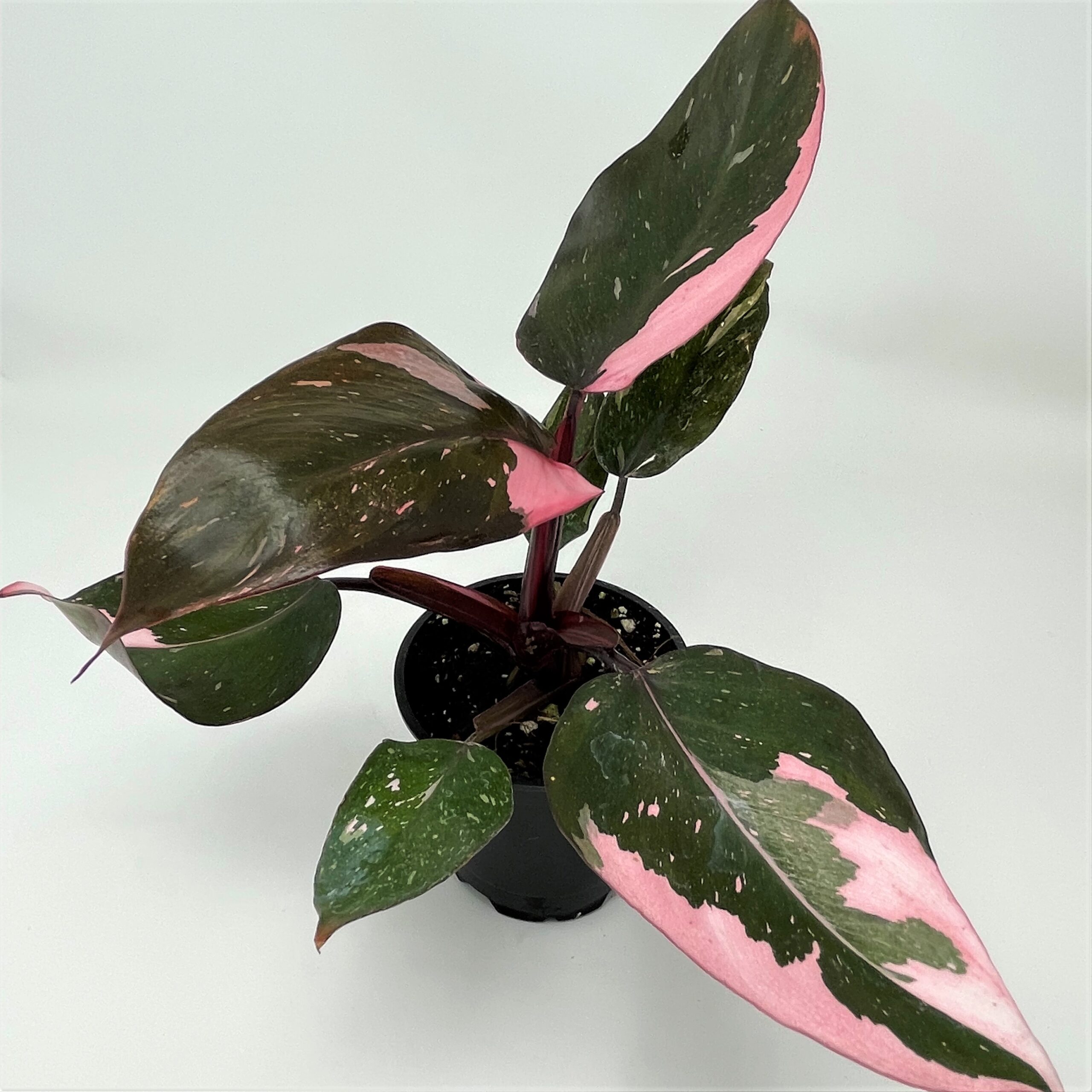
Philodendron 'Pink Princess' Philodendron erubescens hybrid (4.5" Pot) Little Prince To Go
Another misconception is that the more light you give pink princess, the more variegated the plant will become. Also not true! Actually, the more light you give it, the more quickly it will grow—and the faster it grows, the more pretty new growth and unique markings you'll see, says Hancock. But more light does not equal more pink splotches.

Philodendron Pink Princess Care Tips
Its botanical name is Philodendron erubescens pink princess and it is a member of the Araceae family. It is also referred to as Pink Princess Philodendron, Pink Princess Plant, blushing philodendron, or sometimes simply just the Pink Princess. This plant thrives in bright, indirect light and enjoys moist soil conditions.

Philodendron Pink Princess This philodendron is extremely sought after, it has the most amazing
Pink princess philodendron (philodendron erubescens) is a tropical plant with heart-shaped leaves that deserves all the fanfare and applause. An covetable gem to plant parents who love a pop of.

philodendron pink princess Google Search in 2020 House plants, Houseplants, Plants
Temperature for the Philodendron Pink Princess. Your Pink Princess will thrive in normal indoor room temperatures. A healthy temperature range is 60° to 85° Fahrenheit, and preferably above 65°F. This will be the same when growing outdoors as well. Protect your plant, from direct heat as well as cold drafts.

Philodendron 'Pink Princess' syn. Philodendron erubescens 'Pink Princess', Philodendron 'Pink
The pink princess can grow up to two to three feet tall as a houseplant if you follow these care tips: Soil: They like loamy, nutrient-rich, well-draining soil. Temperature: Like all tropical plants, the pink princess philodendron thrives with continuous moisture and mild temperatures, between 55 and 80 degrees Fahrenheit.
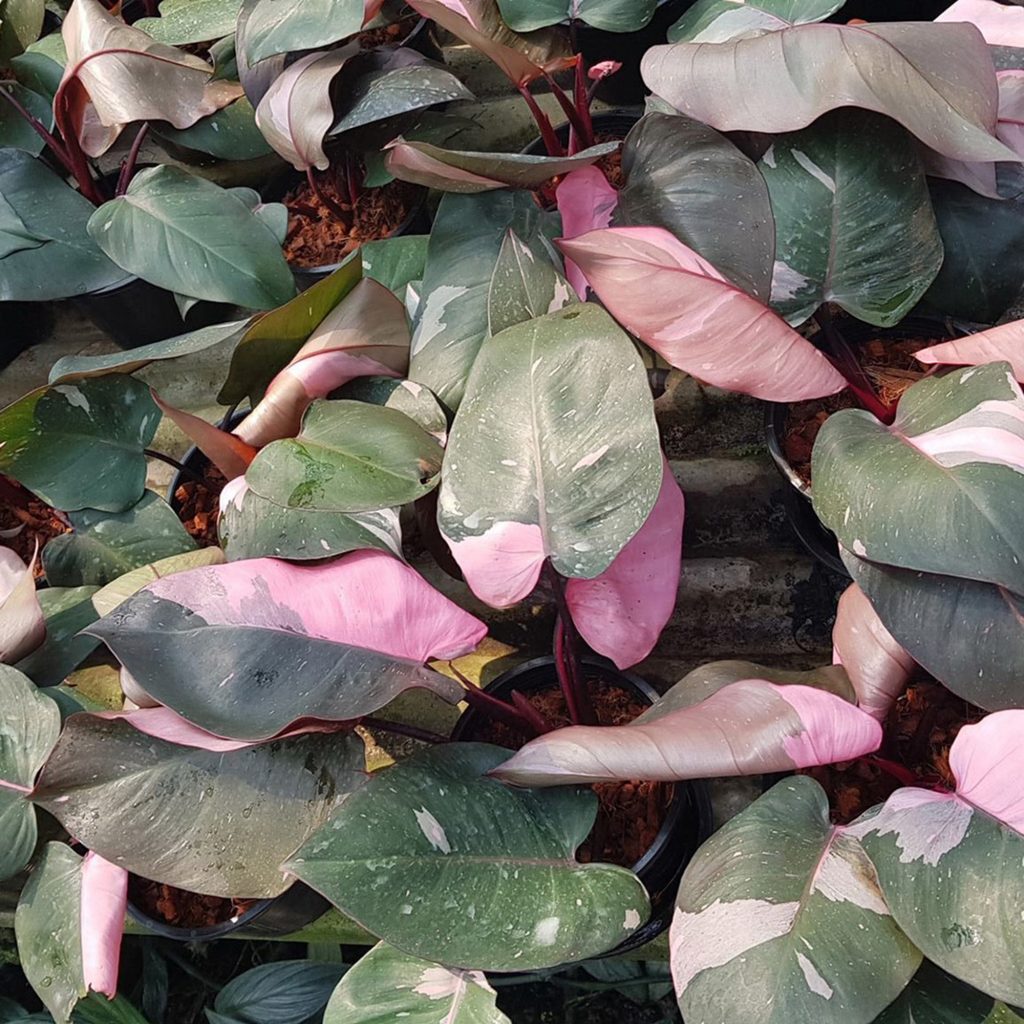
Philodendron Pink Princess BOTGarden
Since Pink Princess plants can be slightly hard to come by, propagation by stem cuttings is an easy way to make the most of this super gift-able, gorgeous pink plant. Simply clip a section of stem containing 2-3 leaves beneath an aerial root node, and place in water. Once the stem has grown roots about 3 inches long, transfer to a small pot.
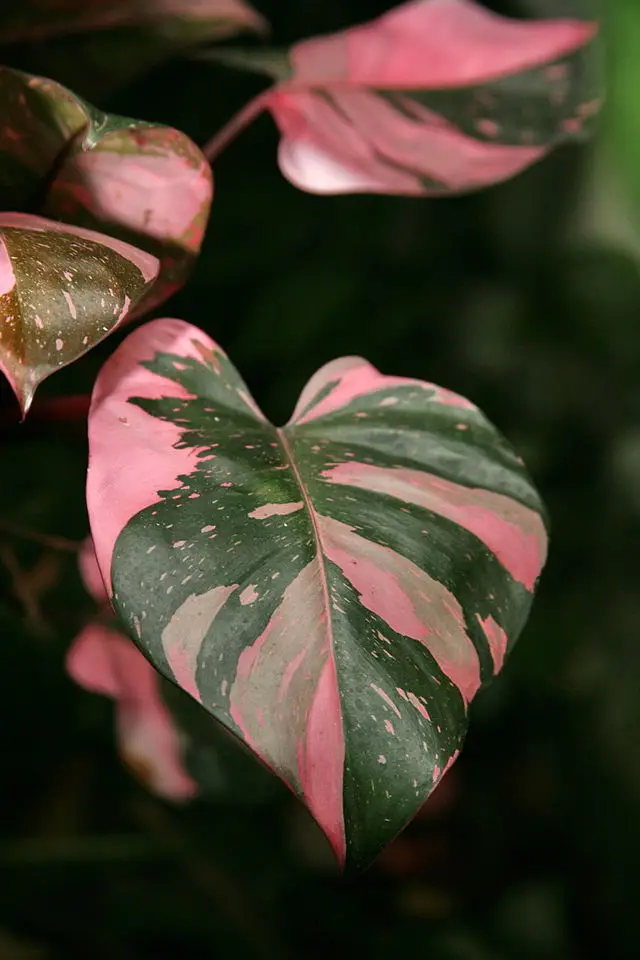
Philodendron Pink Princess Naturallist
Pruning pink princess philodendron. Remove any yellow, damaged, or dead leaves at the base of the plant. Pruning encourages fuller growth and allows the plant to focus energy on new leaves rather than declining foliage. Repotting pink princess philodendron. Repot every 2-3 years in spring, moving it to a slightly larger, plastic container.
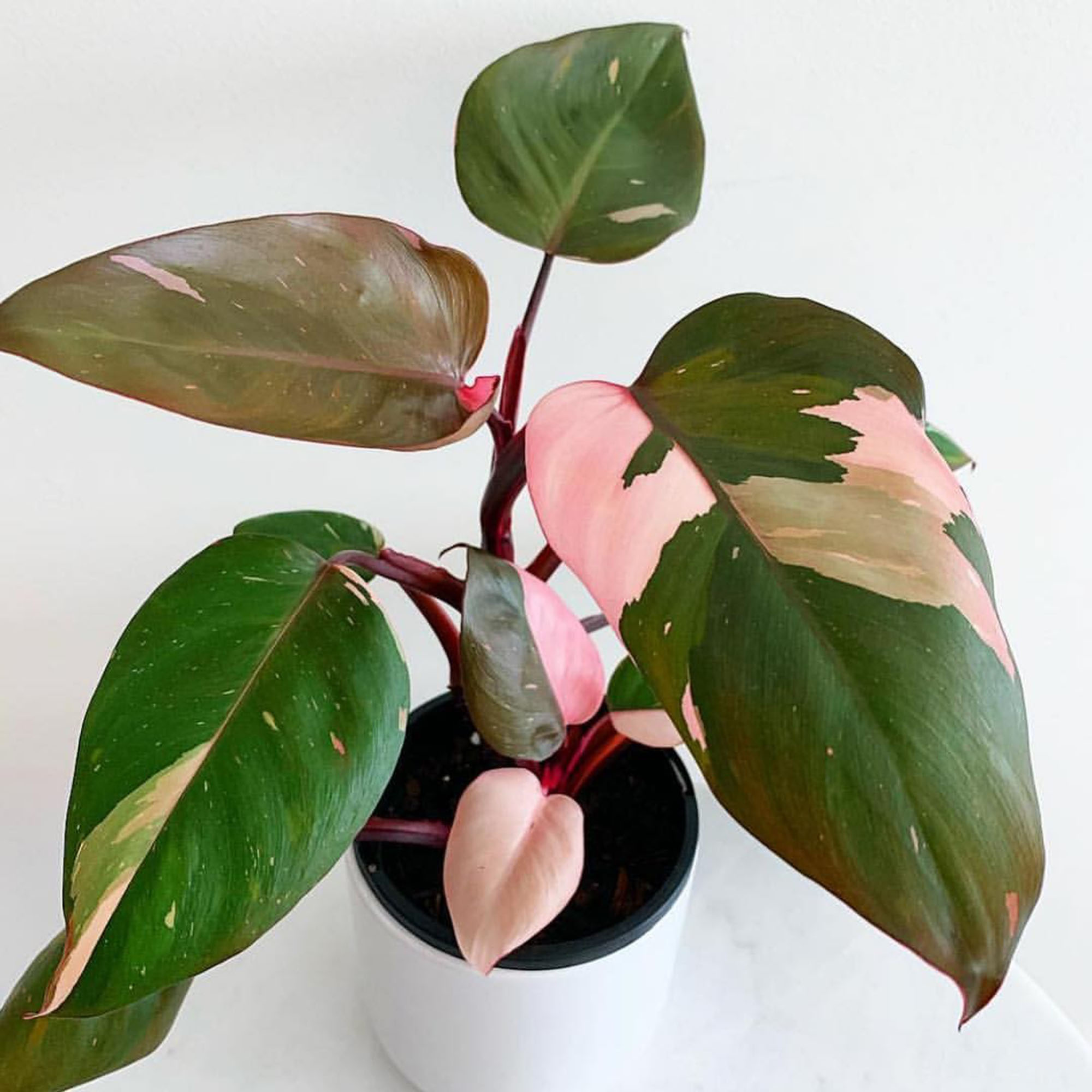
Philodendron Pink Princess BOTGarden
Philodendron Pink Princess will grow best in an environment with 50% humidity. You can use a monitor to see how dry the air is. Increase it by running a humidifier nearby, setting the plant on top of a pebble tray, or misting a few times a week. Healthy Philodendron Pink Princess leaves.

Photo 40594 Philodendron 'Pink Princess' plant lust
The ideal potting soil for growing the Philodendron Pink Princess plant should consist of: 2 parts of all-purpose potting soil mix. 1 part bark. 1 part perlite. Pink Princess loves well-draining soil, that's why it's best to mix it with amendments like perlite, orchid bark, vermiculite, or other amendments.